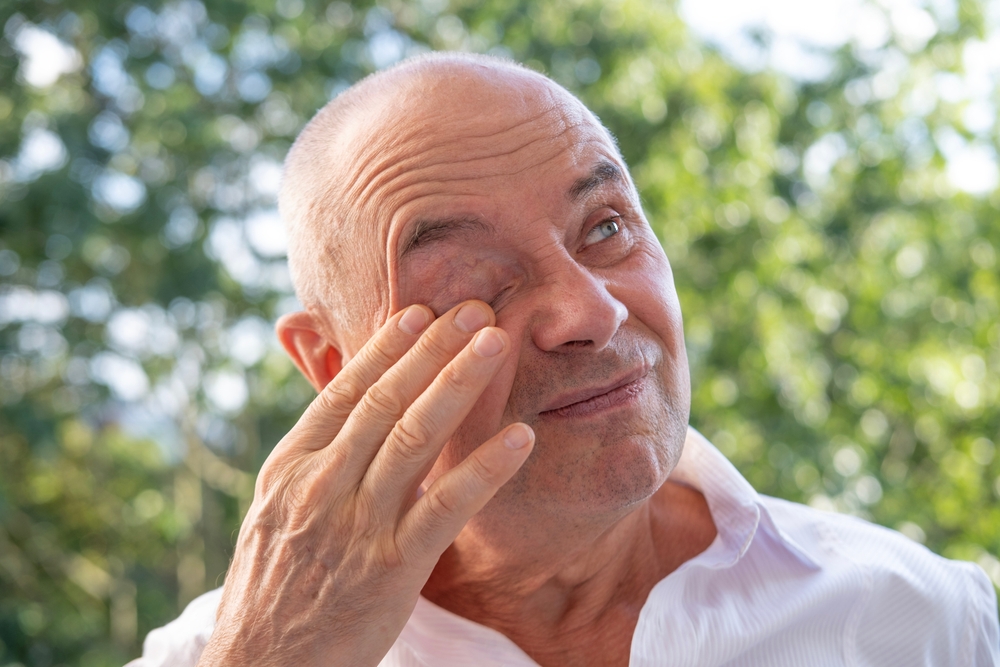

Watery Eyes – Causes, Diagnosis, and Treatment at Emirates Hospitals Group
Watery eyes, also known as epiphora, can be an uncomfortable and frustrating condition that causes excessive tearing. This symptom may occur intermittently or persistently and can significantly impact daily activities. While occasional watery eyes can be harmless, chronic cases may signal an underlying condition that requires medical attention. At Emirates Hospitals Group, we provide comprehensive care to diagnose the cause of watery eyes and offer effective treatments to improve your eye health and comfort.
Causes of Watery Eyes
There are several possible causes of watery eyes, including:
- Allergies: Pollen, dust, pet dander, or certain substances can trigger allergic reactions, leading to excessive tearing, redness, and irritation.
- Dry Eye Syndrome: Ironically, dryness in the eye can sometimes cause excessive tearing, as the eyes attempt to compensate for a lack of moisture.
- Infections: Conjunctivitis (pink eye), eye infections, or blocked tear ducts can lead to increased tear production.
- Blepharitis: Inflammation of the eyelids, often caused by bacterial infection or skin conditions like rosacea, can contribute to watery eyes.
- Eye Irritants: Exposure to smoke, wind, strong chemicals, or foreign particles can irritate the eyes, resulting in excessive tearing.
- Blocked Tear Ducts: If the tear ducts become blocked, tears cannot drain properly, causing tears to accumulate in the eye and spill over.
- Age-related Changes: As we age, the production and drainage of tears may become less efficient, leading to watery eyes.
- Eyelid Abnormalities: Conditions such as ptosis (drooping eyelids) or entropion (inward-turning eyelids) can affect tear drainage and contribute to excessive tearing.
- Environmental Factors: Dry or windy weather conditions can cause the eyes to become irritated and produce excess tears as a protective response.
Symptoms of Watery Eyes
The common symptoms associated with watery eyes include:
- Excessive tearing or overflow of tears from the eyes.
- Redness or irritation around the eyes.
- Sensitivity to light (photophobia).
- Blurry vision due to tears disrupting the normal tear film.
- Gritty or scratchy feeling in the eyes.
- Mucus discharge or crusting around the eyes, especially if caused by infection.
- Swelling or tenderness in the eyelid area.
Diagnosis of Watery Eyes
To determine the cause of watery eyes, a thorough evaluation is essential. At Emirates Hospitals Group, our eye care specialists use the following diagnostic methods:
- Physical Examination: A doctor will assess the eyes for signs of irritation, infection, or abnormal tear production and drainage.
- Medical History: A review of your medical history, including any previous eye conditions, allergies, or current medications, helps identify the cause.
- Tear Breakup Test: This test evaluates the stability of the tear film and the rate of tear evaporation, which can help diagnose dry eye syndrome.
- Schirmer’s Test: A small strip of paper is placed under the lower eyelid to measure tear production and determine if dryness is contributing to excessive tearing.
- Dye Staining: Special dyes are used to identify any damage to the cornea or tear drainage issues.
- Eye Imaging: In some cases, imaging tests or X-rays may be conducted to examine the tear ducts and check for blockages or other structural issues.
Treatment for Watery Eyes in Dubai
Treatment for watery eyes varies based on the underlying cause. At Emirates Hospitals Group, our specialists offer personalized treatment options designed to alleviate symptoms and improve eye health. Common treatment options include:
- Allergy Management: For watery eyes caused by allergies, antihistamine medications, eye drops, or allergy shots may be recommended to reduce symptoms.
- Artificial Tears and Lubricants: Eye drops or lubricating gels can help relieve dry eye symptoms, improve moisture retention, and reduce excessive tearing.
- Warm Compresses: Applying warm compresses to the eyes can help ease inflammation, clear blocked tear ducts, and promote tear drainage.
- Antibiotic or Antiviral Medications: If an eye infection like conjunctivitis is causing watery eyes, antibiotics or antiviral medications may be prescribed.
- Tear Duct Dilation or Surgery: In cases of blocked tear ducts, tear duct dilation or surgical procedures like dacryocystorhinostomy (DCR) may be necessary to restore normal tear drainage.
- Eyelid Surgery: For structural abnormalities such as ptosis or entropion, surgical correction can help improve eyelid function and prevent excessive tearing.
- Corticosteroid or Immunosuppressive Medications: For conditions like blepharitis or autoimmune-related dry eyes, anti-inflammatory medications may help control symptoms.
- Lifestyle Adjustments: Avoiding irritants, wearing protective eyewear in harsh environments, and maintaining a healthy environment with proper humidity can help reduce symptoms.
Preventing Watery Eyes
To help reduce the occurrence of watery eyes, consider these preventive measures:
- Protect Your Eyes from Irritants: Wear sunglasses to shield your eyes from wind and dust, and use protective eyewear when exposed to chemicals or allergens.
- Maintain Eye Hygiene: Regularly clean your eyelids and lashes to prevent infections and irritation.
- Manage Allergies: Use allergy medications as prescribed, especially during high pollen seasons, to reduce allergic reactions affecting the eyes.
- Stay Hydrated: Proper hydration helps maintain healthy tear production and eye lubrication.
- Take Frequent Breaks: If you work in front of a computer or digital screen for extended periods, follow the 20-20-20 rule to reduce eye strain and dryness.
Related Treatments
Request an appointment
Please complete the details and we will book you shortly.
